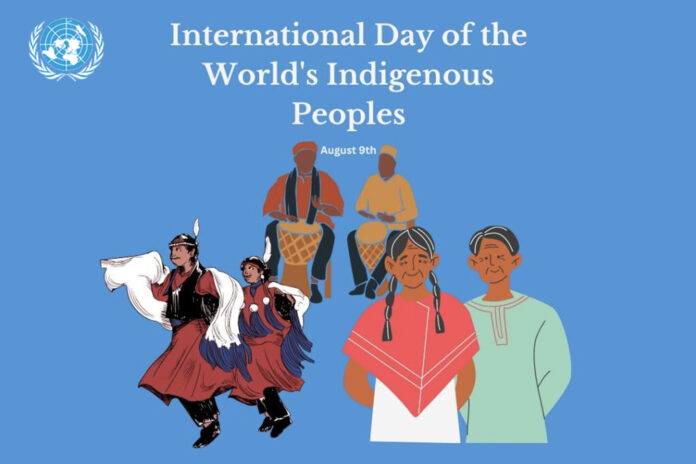United Nations Secretary-General Antonio Guterres has urged the international community to safeguard the rights of indigenous peoples to live in peace and dignity, in his video message for the International Day of the World’s Indigenous Peoples, which is observed on August 9 annually.
Indigenous peoples represent around 6 per cent of the world’s population, but their stewardship signifies an outsized contribution to our global community, Guterres said on Friday.
Highlighting their roles as “keepers of knowledge and traditions” that help safeguard some of the most biodiverse areas of the planet, and as “guardians of the environment,” the UN chief said, “Their survival is our survival.”
While their unique way of life is a testament to the rich tapestry of humanity, Indigenous people also face serious challenges that threaten their very existence, Guterres warned, adding that they are often the victims of threats and violence, and also face of accelerated deforestation and land degradation due to extractive sectors like mining, agriculture and transport.
He added that “Ancestral homelands and natural resources that indigenous peoples depend on for survival are coming under siege. And their rights to self-determination and agency — enshrined in the UN Declaration on the Rights of Indigenous Peoples — are yet to be fulfilled.”
Noting that this year’s theme “Protecting the Rights of Indigenous Peoples in Voluntary Isolation and Initial Contact” reminds us of their rights to protect themselves from unwanted contact, the UN chief warned that contact “can have a devastating impact,” including “exposure to infectious diseases, forced assimilation and the disruption of culture, language, and livelihoods”.
He called on the international community to “stand behind the rights of indigenous peoples to chart their own futures” and “safeguard their rights to live in peace and dignity”.
The UN General Assembly adopted a resolution in December 1994 to designate August 9 as the International Day of the World’s Indigenous Peoples.
According to the United Nations, there are an estimated 476 million indigenous people in the world living across 90 countries, making up less than 6 per cent of the world’s population. They speak an overwhelming majority of the world’s estimated 7,000 languages and represent 5,000 different cultures.
It is because the indigenous peoples share a special ancient and sacred bond with their ancestral homeland, having their own unique societal, economic, cultural and traditional ecosystems that they are called ‘peoples’ and not ‘populations.’ The word ‘peoples’ safeguards their right to self-determination, preserving their identity as distinct native communities.
In India indigenous peoples are referred to as ‘Adivasis’ and ‘tribals’ and are a distinct class recognised by the Constitution of India as a separate group of peoples called the Scheduled Tribes. Outside the African continent, India has the largest number of indigenous peoples in the world as per information provided by the Ministry of Tribal Affairs, Government of India.










